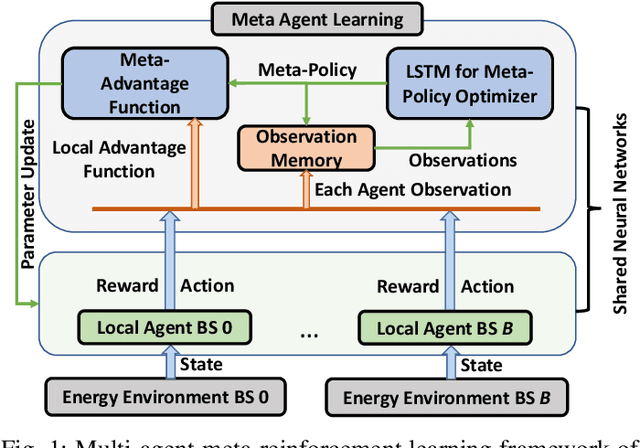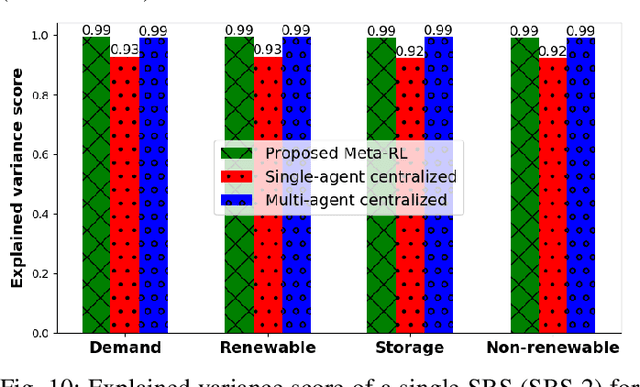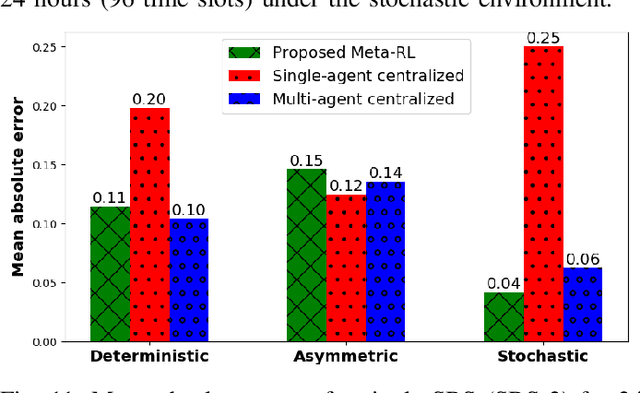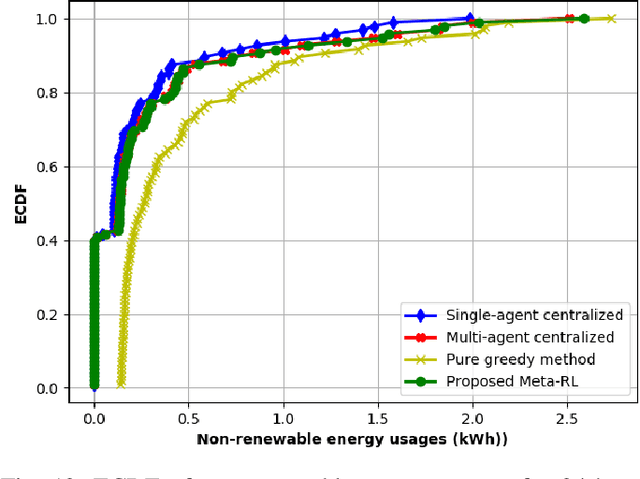Multi-Agent Meta-Reinforcement Learning for Self-Powered and Sustainable Edge Computing Systems
Paper and Code
Feb 20, 2020



The stringent requirements of mobile edge computing (MEC) applications and functions fathom the high capacity and dense deployment of MEC hosts to the upcoming wireless networks. However, operating such high capacity MEC hosts can significantly increase energy consumption. Thus, a BS unit can act as a self-powered BS. In this paper, an effective energy dispatch mechanism for self-powered wireless networks with edge computing capabilities is studied. First, a two-stage linear stochastic programming problem is formulated with the goal of minimizing the total energy consumption cost of the system while fulfilling the energy demand. Second, a semi-distributed data-driven solution is proposed by developing a novel multi-agent meta-reinforcement learning (MAMRL) framework to solve the formulated problem. In particular, each BS plays the role of a local agent that explores a Markovian behavior for both energy consumption and generation while each BS transfers time-varying features to a meta-agent. Sequentially, the meta-agent optimizes (i.e., exploits) the energy dispatch decision by accepting only the observations from each local agent with its own state information. Meanwhile, each BS agent estimates its own energy dispatch policy by applying the learned parameters from meta-agent. Finally, the proposed MAMRL framework is benchmarked by analyzing deterministic, asymmetric, and stochastic environments in terms of non-renewable energy usages, energy cost, and accuracy. Experimental results show that the proposed MAMRL model can reduce up to 11% non-renewable energy usage and by 22.4% the energy cost (with 95.8% prediction accuracy), compared to other baseline methods.
 Add to Chrome
Add to Chrome Add to Firefox
Add to Firefox Add to Edge
Add to Edge